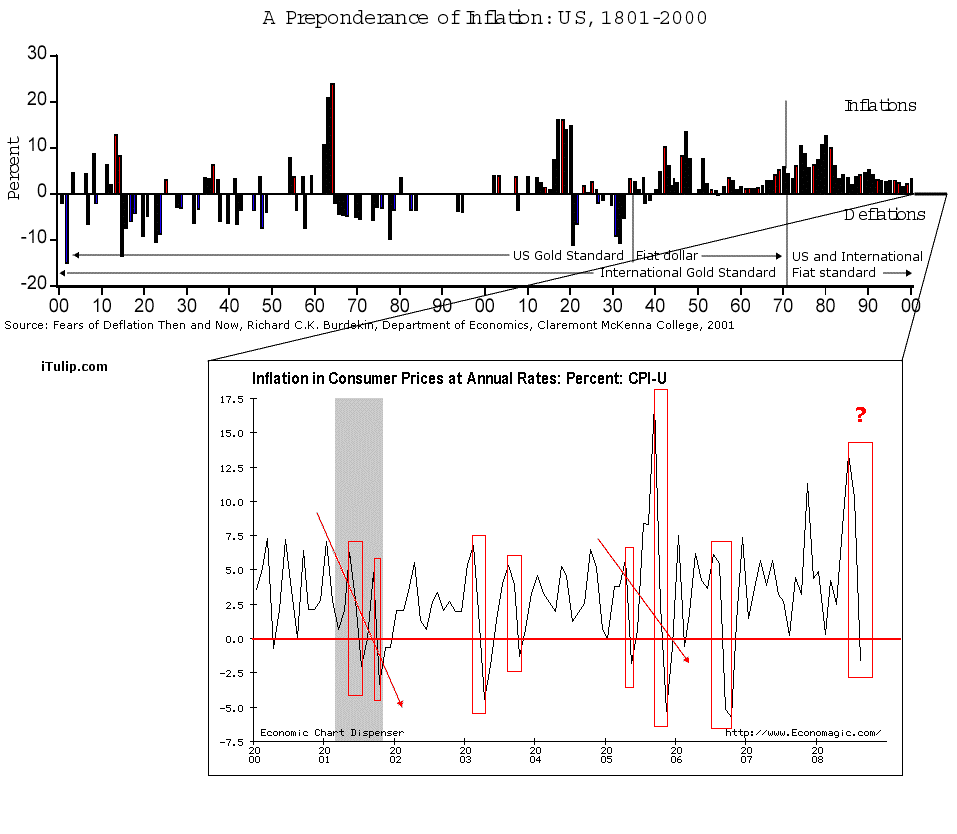Re: Still no deflation: Disinflation then lots of inflation
I have yet to see any good response to Raja's question. I posted another piece about my view of looming deflation.
So the crux is this: will input costs rise, or not?
I have yet to see clear evidence that they must rise in the short term, while the dollar is strengthening (cash being king). Oil is down. Metals are down. Those are substantial input costs to food and goods we use. If people stop buying most things (only bare essentials), I think there is further room for downward price movement on the input side (not permanently, but for a while).
I think the key lies, not in what the banks and government does, but in how the populace responds to those actions. It seems that here we have mixed policy decisions, such as printing more money, with human responses, which are much less predictable. It is clear that the policy decision is to create more money supply. But, is that guaranteed to affect the mass psyche in ways that will prevent deflation in the short run?
I like that EJ has done so much historical research, and I have great respect for him for that. But AFAIK, this situation of massive globalism, instant electronic communication, intertwined economies, money supplies divorced from anything of underlying value - is unique in history. Can we really use history to predict how people will respond to Helicopter Ben's ploys?
Morgan
Originally posted by raja
View Post
So the crux is this: will input costs rise, or not?
I have yet to see clear evidence that they must rise in the short term, while the dollar is strengthening (cash being king). Oil is down. Metals are down. Those are substantial input costs to food and goods we use. If people stop buying most things (only bare essentials), I think there is further room for downward price movement on the input side (not permanently, but for a while).
I think the key lies, not in what the banks and government does, but in how the populace responds to those actions. It seems that here we have mixed policy decisions, such as printing more money, with human responses, which are much less predictable. It is clear that the policy decision is to create more money supply. But, is that guaranteed to affect the mass psyche in ways that will prevent deflation in the short run?
I like that EJ has done so much historical research, and I have great respect for him for that. But AFAIK, this situation of massive globalism, instant electronic communication, intertwined economies, money supplies divorced from anything of underlying value - is unique in history. Can we really use history to predict how people will respond to Helicopter Ben's ploys?
Morgan


Comment